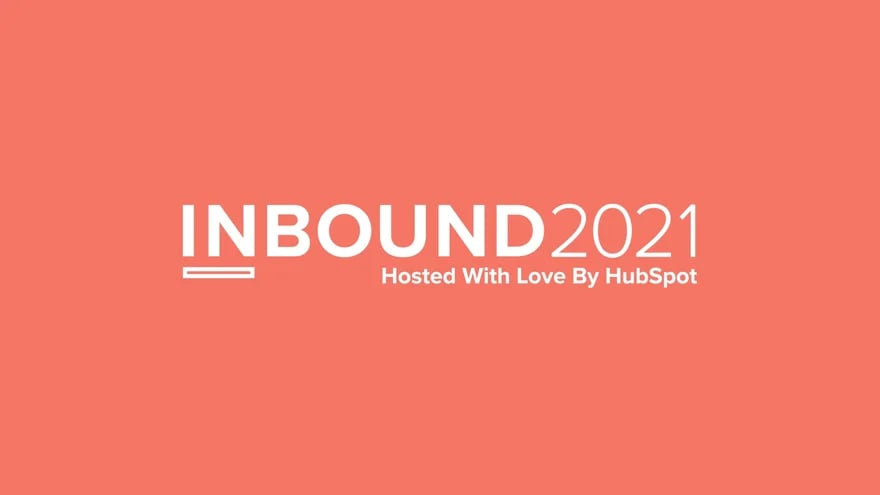HubSpot vs. Salesforce - frequently asked questions answered
When organizations consider a new CRM system, two names often immediately spring to mind: HubSpot and Salesforce. Both are among the world's top CRM software, but differ significantly in usability, speed of implementation, flexibility and cost structure.
In this article, we answer the most frequently asked questions, but also offer strategic insight that goes beyond a standard feature comparison. Whether you're an SMB, scale-up or enterprise - this comparison will help you determine which solution will make your organization the most commercially agile.
What is the key difference between HubSpot and Salesforce?
HubSpot is designed as a single integrated platform in which marketing, sales, service and CMS work together natively. The emphasis is on simplicity, speed and scalability without technical barriers.Salesforce offers a modular ecosystem with enormous depth. That makes it particularly powerful for organizations with complex, highly customized processes, but also requires intensive configuration, management and technical expertise.
In short, HubSpot excels in ease of use and time-to-value. Salesforce is stronger in extreme customization environments, but comes with higher complexity and TCO.
Is HubSpot suitable for larger organizations?
A misconception we often hear is that HubSpot would be especially suitable for smaller organizations. The reality is that HubSpot has invested heavily in enterprise capabilities in recent years:
- Custom Objects for complex data modeling
- Advanced automation, conditional logic & triggers
- ABM tools, deal splits, sales playbooks and team permissions
- Integrations with +1,000 apps, including ERP, BI, PIM and collaboration tools
- Compliance: SOC 2 Type II, GDPR, data partitioning & audit logging
International organizations such as Suzuki, Doctolib and Atlassian use HubSpot globally.
Fact: Gartner has recognized HubSpot as a "Leader" in the Magic Quadrant for B2B Marketing Automation as well as CRM since 2023.
Which platform is more user-friendly?
HubSpot is designed with the end user in mind. Navigation, UI, workflows and reports are visual AND intuitive. Training is limited and teams adopt it quickly.
Salesforce offers great flexibility, but has a steeper learning curve. User experience often depends on how well the platform is set up by consultants or internal admins.
In summary: HubSpot lowers barriers for end users; Salesforce requires more training, setup and management.
How do HubSpot and Salesforce differ in price?
HubSpot has a transparent pricing model. You know upfront what you're getting. Many enterprise features are included by default. This prevents surprises later and speeds up decision-making.
Salesforce works with modular licenses and add-ons. The base price may seem lower, but the total cost of ownership (TCO) is often considerably higher because of additional modules, implementation costs and technical maintenance.
TCO comparison.
HubSpot: lower initial investment, faster implementation, less technical dependence.
Salesforce: higher initial as well as operational costs, but more suitable for 100% customization needs.
How quickly can you go live with HubSpot or Salesforce?
The speed at which a CRM can go live depends on the complexity of the organization.- HubSpot, even in enterprise environments, can be rolled out quickly thanks to its intuitive interface, prebuilt functionalities and standard integrations. This makes it possible to start pragmatically, realize value quickly and expand later.
- Salesforce offers deep customization, but this strength often comes with longer lead times. Setting up, developing and integrating custom modules requires a lot of tuning and testing cycles.
Conclusion: those who want to move quickly and have the organization benefit quickly from the CRM investment have a clear advantage with HubSpot.
What about adaptability and customization?
Both systems are flexible, but in different ways:
-
HubSpot offers low-code customizability: custom objects, workflows, dashboards and integrations without developer dependence.
-
Salesforce is built for deep-code customization. Perfect for organizations that want to digitize completely unique processes with the caveat that it requires more time, money and management.
Advice: If 80% of your processes are within the standard, HubSpot is more efficient. Only with truly exceptional processes is Salesforce a better match.
How well are the marketing functionalities integrated?
HubSpot originates from the marketing angle. As a result, features such as:
- Email marketing
- Lead scoring
- Workflows
- Landing pages
- Social publishing
- Campaign reports
Marketing is natively integrated into one platform, directly connected to sales and service.
Salesforce offers these features through Marketing Cloud. Powerful, but as a stand-alone product with additional integration and licensing requirements.
Advantage HubSpot: One platform, one dataset, one reporting environment. No data silos.
Which solution is a better fit for my organization?
HubSpot is the logical choice for organizations that want quick results, value ease of use, and seek an integrated platform in which marketing, sales, and service work together seamlessly.
Salesforce is a better fit for organizations with complex, unique processes that require deep customization, and who are willing to invest in longer implementation and management processes.
| Organization Type | Best Choice | Why. |
|---|---|---|
| SMB / Scale-up | HubSpot | Fast live, low complexity, intuitive |
| Fast-growing companies | HubSpot | Scalable, modular, strong ROI |
| Large enterprise with standard processes | HubSpot | Enterprise ready without over-engineering |
| Enterprise with 100% unique, complex processes | Salesforce | Full customization possible, provided budget and time are available |
Conclusion
Both HubSpot and Salesforce are excellent CRM systems. The best choice depends on your ambition, complexity and time-to-market.
For organizations that want to create value quickly, seek operational simplicity and truly integrate marketing, sales and service into one platform, HubSpot often offers the most value at the lowest complexity and cost.
Salesforce, in turn, is the right answer if your organization wants to digitize unique processes with deep customization and has the resources to manage that long-term.
Frequently asked questions about HubSpot vs. Salesforce
HubSpot is an integrated, user-friendly CRM platform that combines marketing, sales, and service in a single system. Salesforce has a modular structure, offers extensive customization options, and is often chosen by organizations with complex, unique processes.
Yes. HubSpot has enterprise features such as custom objects, advanced automation, multi-pipeline management, account-based marketing (ABM), and advanced permissions management. It supports international teams and complies with compliance requirements such as GDPR and SOC 2 Type II.
In general, HubSpot can go live faster, often within a few weeks, thanks to standard functionalities and user-friendly design. Salesforce implementations typically take longer due to customization and integration complexity.
HubSpot has a transparent pricing model with lower entry costs and many included features, resulting in a lower Total Cost of Ownership (TCO). Salesforce often has higher total costs due to license modules, customization, and specialized management.
HubSpot offers flexibility through configurations, workflows, and App Marketplace integrations, without requiring extensive development processes. Salesforce offers virtually unlimited customization through code, which can increase complexity and costs.
HubSpot has natively integrated marketing automation, email marketing, and lead nurturing into its CRM. Salesforce uses Marketing Cloud, a separate module that requires additional integration and management.
Choose HubSpot if you want quick results, value ease of use, and want a single integrated platform for marketing, sales, and service.
Choose Salesforce if you have highly complex, unique processes and are willing to invest in long-term implementation and management processes.

Wil jij het maximale uit HubSpot halen? Abonneer je op onze nieuwsbrief, volg ons op LinkedIn of neem deel aan onze HubSpot User Days!
Ontdek HubSpot User DaysShare this
You May Also Like
These Related Stories

Inbound 2021: all product updates at a glance

HubSpot or HubSpot partner: what's the difference (and what do you need)?

